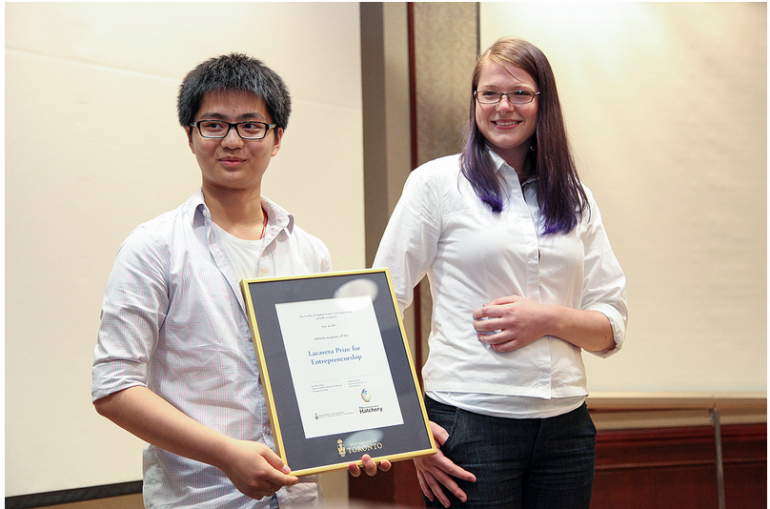University of Toronto-based student startup Modly has won the 2013 Lacavera Prize for Entrepreneurship, awarded to the best DemoDay business pitch at The Hatchery.
The Hatchery is an incubator that serves University of Toronto students looking to start an entrepreneurial venture, providing an ecosystem of recourses and relationships to turn ideas into a viable business.
Modly is made up of cofounders Anastasiya Martyts and Tiange Li. The pair took home $20,000 as part of the prize.
Modly has created a modular, affordable, customizable lighting system that can replace the heavy bulk of typical photographic equipment. The pair competed with eight other teams to win the top prize, sponsored by entrepreneur and telecommunications executive Anthony Lacavera. According to the Hatchery website, “their product grew out of Li’s desire as an amateur photographer for an easy-to-use, portable system capable of creating versatile lighting effects. Martyts describes it as ‘a system for hobbyists developed by hobbyists’.”
Now Martyts and Li will continue to develop the lighting system with the help of Hatchery mentor Anil Bhole, an intellectual property lawyer, and Amy Chong, a Rotman School of Management MBA candidate.
The featured teams at the Hatchery illustrate the cross-disciplinary nature of the program, based within U of T’s Faculty of Applied Science & Engineering while encouraging collaboration with other disciplines. “Ten to 15 years from now, we’ll be able to point to a number of successful entrepreneurs and say they developed their formative experience at the Hatchery,” said Professor Jonathan Rose.
Before mentors join the program, The Hatchery warns them that “mentoring is a two-way street.” Their website is clear about what its expects from its helpers and why they expect it, something I found refreshing. “You’ll be coaching some of the brightest minds in the city, you’ll also have an opportunity to view the world from the eyes of a younger, eager demographic. This is both a chance to teach and to learn.”
Furthermore, mentors receive no financial compensation or ownership or stake in the business.
For students, they’ll enter into a three-step process that makes up The Hatchery. First they develop a document that gives an overview of theirbusiness model, using support and resources of fellow members, faculty and coaches. Then they develop a minimal viable product, with the help from mentors and faculty, laboratories, equipment, computers, and testing facilities. Finally, the students prepare a DemoDay pitch, while program connects them with strategic partners with the goal of raising capital.


